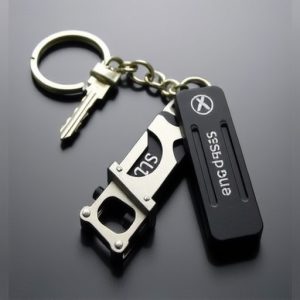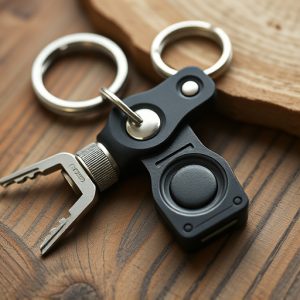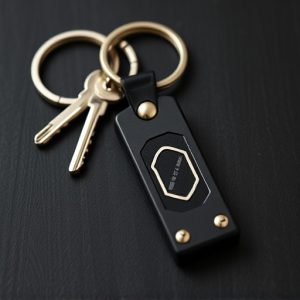Heart Attack Self-Defense Keychain Legal Carry Guidelines by State
The legal status of self-defense tools like the Heart Attack Self Defense Keychain varies greatly ac…….
The legal status of self-defense tools like the Heart Attack Self Defense Keychain varies greatly across US states, with regulations balancing personal protection and public safety. These keychains, designed for easy accessibility, empower individuals at risk of cardiac arrest but operate in a gray area governed by local laws. Users must understand "stand your ground" laws, permit requirements, and training certifications to avoid legal repercussions while leveraging the keychain's peace of mind and swift emergency response capabilities within legal limits.
“In today’s unpredictable world, individuals are increasingly seeking ways to protect themselves. One innovative tool gaining traction is the Heart Attack Self-Defense Keychain—a compact, powerful device designed for personal safety. This article explores the legal framework surrounding self-defense tools, focusing on defensive keychains. We delve into state-specific guidelines, dissecting what the law says about carrying such devices, and offering practical considerations for those interested in this life-saving option. By understanding these regulations, users can navigate their rights while prioritizing safety.”
- Understanding the Legal Framework for Self-Defense Tools
- Heart Attack Self-Defense Keychain: A Close Look
- States with Specific Guidelines for Defensive Keychains
- What Does the Law Say About Carrying Self-Defense Tools?
- Practical Considerations and Safety Measures
Understanding the Legal Framework for Self-Defense Tools
In many jurisdictions, the legal framework surrounding self-defense tools like the Heart Attack Self Defense Keychain is carefully balanced to protect both individuals’ right to defend themselves and public safety. It’s crucial to understand that while such devices may be marketed as simple and easy-to-use, their legal carry guidelines vary significantly from state to state. These variations depend on factors like the specific tool’s design, intended use, and how it’s deployed during an attack.
For example, some states permit the open carry of self-defense keychains without a permit, while others require permits or registration for certain types of devices. Still, others may have restrictions on where and when these tools can be used. Individuals carrying Heart Attack Self Defense Keychains should also be aware of “stand your ground” laws, which allow for the use of force, including deadly force, if one perceives an imminent threat to their life or safety. However, these laws come with nuances and limitations that must be understood to avoid potential legal repercussions.
Heart Attack Self-Defense Keychain: A Close Look
The Heart Attack Self-Defense Keychain is a revolutionary tool designed to empower individuals with a simple yet effective method of self-protection. This compact device is easily portable and attaches to keys, making it accessible at all times. Its primary function is to assist users in critical situations where they might experience a sudden cardiac arrest, providing a means to call for help swiftly. The keychain is equipped with emergency contact features and can quickly connect users to medical assistance through a simple press of a button.
This innovative solution offers peace of mind, especially for those at higher risk of heart-related issues. With the push of a button, bystanders or nearby security personnel can be alerted, ensuring prompt response times. The Heart Attack Self-Defense Keychain is a game-changer in personal safety, demonstrating that sometimes, the simplest tools can make the most significant difference during emergencies.
States with Specific Guidelines for Defensive Keychains
Many states in the US have recognized the importance of providing clear guidelines for carrying defensive keychains, especially for self-defense purposes. These states have implemented specific laws and regulations to ensure their citizens can defend themselves effectively while adhering to legal boundaries. For instance, some states explicitly permit the carrying of heart attack self-defense keychains, which contain a sharp edge designed to cause temporary incapacitation during an attack.
The guidelines often include requirements for proper licensing, training, and age restrictions. Some states may mandate that individuals seeking to carry such devices pass a background check and complete a certified self-defense course. These measures aim to promote responsible ownership and usage of defensive keychains while mitigating potential risks associated with their use.
What Does the Law Say About Carrying Self-Defense Tools?
The legal landscape surrounding self-defense tools, including the Heart Attack Self Defense Keychain, varies significantly across different states. While many jurisdictions allow individuals to carry certain self-defense devices for personal protection, specific regulations and restrictions are in place to ensure public safety. These guidelines often dictate what types of tools are permitted, where they can be carried, and under what circumstances they may be used.
In general, laws pertaining to self-defense tools aim to balance an individual’s right to protect themselves with the need to prevent misuse or accidental harm. For example, some states permit the carrying of pocket knives or pepper spray for self-defense purposes, while others have more stringent requirements, such as requiring permits or specific training certifications. The Heart Attack Self Defense Keychain, designed as a non-lethal tool for personal safety, might fall into a gray area, where local laws determine its legality and carry restrictions.
Practical Considerations and Safety Measures
When considering a heart attack self defense keychain for legal carry, it’s crucial to balance personal safety with practical considerations. These keychains are designed as a last resort, offering a simple yet effective way to deter potential attackers and seek help during an emergency. However, their size and functionality must align with your daily needs and local laws.
Safety measures extend beyond the physical attributes of the keychain itself. Users must be trained in its proper usage and understand when and how to deploy it effectively. Additionally, staying informed about regional regulations regarding self-defense tools is essential. Knowing exactly what constitutes legal carry ensures that you’re prepared without crossing any legal boundaries, especially considering that a heart attack self defense keychain’s use may have significant repercussions.
When considering carrying a heart attack self-defense keychain, understanding your state’s specific guidelines is crucial. These defensive keychains offer an accessible and discreet self-defense option, especially in situations where traditional weapons may not be permitted. While laws vary across the states, many have recognized the potential life-saving benefits of these tools. Always ensure you comply with local regulations to stay within legal boundaries and prioritize safety during any self-defense scenario.


